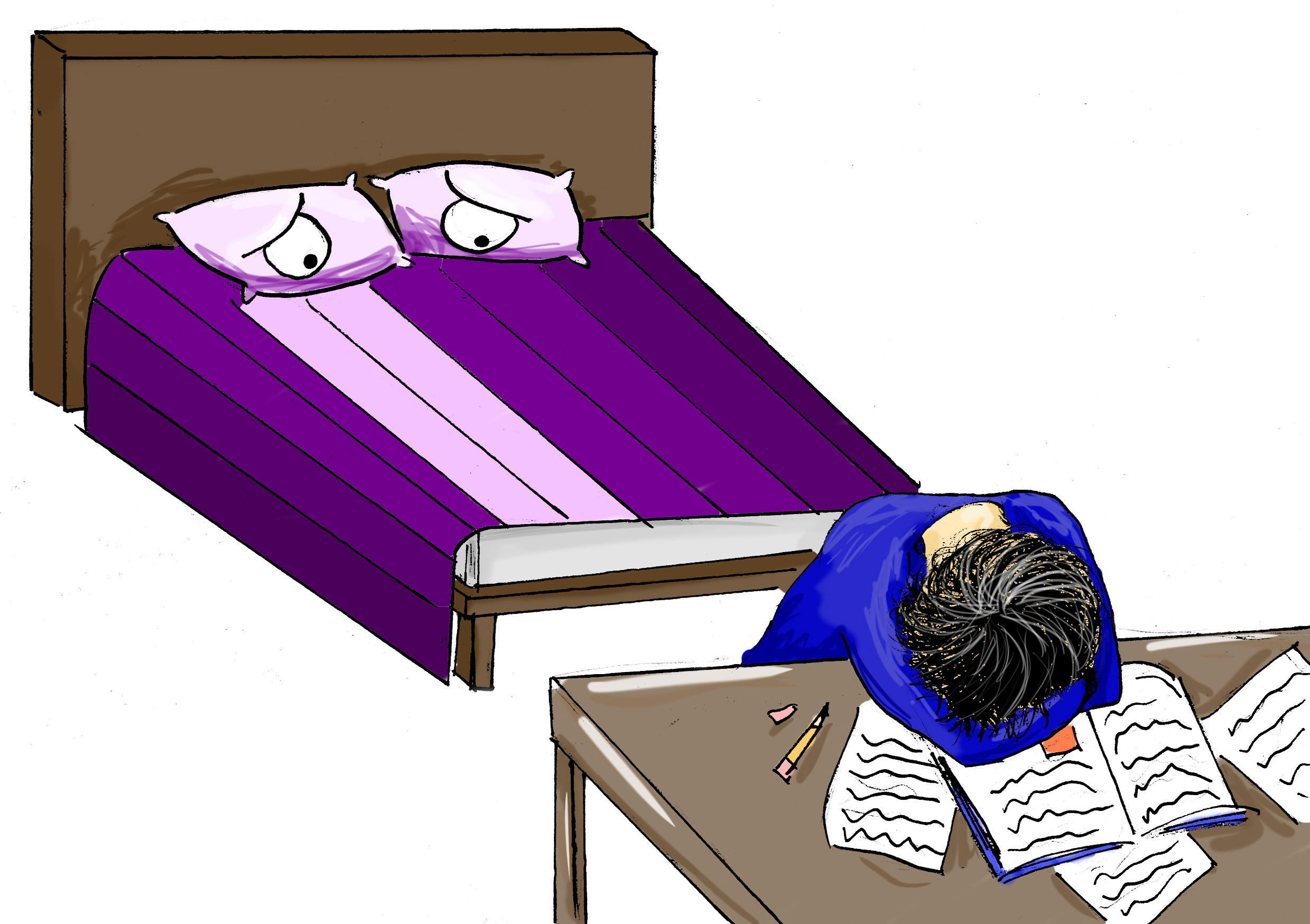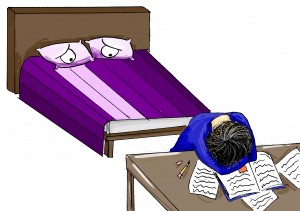Talking Mental Health: Self-care during exams


With exams come thoughts of late nights, lack of routine, little sleep and overall exhaustion. It’s usually a time when positive self-care habits are completely abandoned in lieu of studying, or cramming to finish a term’s worth of readings in one night.
Most students are quick to say that they don’t have time to take care of themselves during this hectic time. Although there may be some truth to this, it is often your overall personal health practices that can help give you the stamina and energy to successfully get through this time. These health practices are the activities you do and the decisions you make that help restore and/or maintain your physical and mental health.
A proactive approach to self-care helps make you more resilient to stress, and in the long-term can prevent chronic stress from damaging your health. If you were asked what you do to maintain your physical and mental health, would you know what to answer? Most students would talk about exercise and attempts at healthy eating. Although these are key components of self care, self-care also includes your sleep routine, spending time with friends, having fun and feeling connected to others.
If you were to do a “self-care audit” and examine how you spend your time, you would likely find that you could find some time to “recharge your batteries.”
Although you may attempt to take study breaks, students often get caught up in time killers during their breaks that not only steal from study time, but can make it difficult to regain focus. These include the distractions of texting, Facebook, watching TV or mindlessly surfing the Internet. Using your study breaks to incorporate some positive self-care may be helpful. This could include going for a quick walk, doing some stretches, making a healthy snack, practicing some relaxation strategies or listening to calming music.
Sleep is one of the biggest struggles for students, particularly during peak times of increased workload. Everyone has a different need for sleep and the quality of sleep is as important as the quantity. Difficulty focusing, staying awake or having to rely on caffeinated beverages to stay awake may be signs that you are not getting enough quality sleep. Studies show that the best way to maximize academic success is to study and to get a good night’s sleep.
Trying to be as routined as possible with sleep during exams can be helpful. Going to bed and waking at the same time each day is important to maintain a regular sleep cycle. Avoiding caffeinated beverages, spicy food and alcohol four to six hours before bed can also assist sleep. Develop a pre-bed routine that includes some time to decompress; reading for pleasure, having a warm bath, writing in a journal, sitting in candlelight. Anything that works to help you approach bedtime relaxed and as worry-free as possible is important.
Exposure to artificial light from TVs, computers and phones may interfere with the body’s natural ability to produce melatonin which is the chemical needed for sleep. Reserve your bed for the three “Ss” –sleep, sex or if you are sick. Avoid studying and doing your readings in your bed for when it’s time to sleep your mind is used to being alert in this space.
Under high stress, we often make poor food choices. We tend to grab food that is already prepared (aka processed) and that provides some comfort. Some students eat very little, while others tend to overeat during times of stress. When stressed, your body produces cortisol, the stress hormone, which creates cravings for foods that are high in salt, sugar and fat. How often have you cruised to a late night drive thru while up studying? Your body is responding to your stress. Having healthy food prepared ahead of time can be helpful. Socializing with roommates as you make a big dish of a healthy chilli or soup could be an easy way for all of you to have something to grab on the go.
For further information on this and other topics, please tune into Talking Mental Health on Radio Laurier or check out the Counselling Services website. The staff at Counselling Services wishes you a healthy, successful exam period.
Tracey Watson is a counsellor at WLU Counselling Services.
-
Pingback: Free Post 7 – Finals Week Self Care Tips – Tech Glitch


